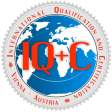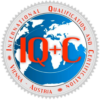ISO 22301:2019
Get ready and start to take your career to the next level
Enroll for Free Newsletter updates
We'll send you a periodic update.
Don't worry, it's not the least bit annoying.

Introduction
What is ISO 22301?
ISO 22301 is an international standard that outlines the requirements for a business continuity management system (BCMS). The standard provides organizations with a framework for identifying potential threats to their operations and creating a plan to mitigate those risks. By implementing a BCMS, businesses can ensure that they have measures in place to continue operations in the event of a disruption, whether it be a natural disaster, cyber-attack, or any other incident.
The Importance of Business Continuity Management System (BCMS)
Business continuity management is the process of identifying potential threats to an organization and developing a plan to ensure the continuity of critical business functions in the event of a disruption. BCMS helps organizations minimize the impact of a disaster on their business operations and reputation. Implementing an ISO 22301-certified BCMS helps companies to ensure that they are prepared for any unexpected events and can quickly resume their operations with minimum disruption.
Reserve your training session by sending an email to support@iqc-vienna.com

Understanding Business Continuity Management System (BCMS)
Overview of Business Continuity Management System
The Business Continuity Management System (BCMS) is a comprehensive and proactive approach to managing risk and ensuring the continuity of critical business functions in the event of a crisis. It involves a set of policies, procedures, and processes that help to identify potential threats and risks to the organization and develop a plan to minimize the impact of those risks.
The Relationship between BCMS and ISO 22301
ISO 22301 sets out the requirements for a robust BCMS. By implementing an ISO 22301-certified BCMS, organizations can demonstrate that they have a comprehensive and effective plan in place to manage any incidents that may occur. The standard specifies the requirements for developing, implementing, and continually improving a BCMS.
Key Concepts in BCMS Implementation
When implementing a BCMS, there are several key concepts to keep in mind. These include identifying critical business functions, analyzing risks and impacts, developing response and recovery plans, and testing and reviewing the plan regularly. It's essential to involve all relevant stakeholders in the process and ensure that they understand their roles and responsibilities in the event of a disruption.
The Benefits of Implementing ISO 22301
Business Benefits of ISO 22301 Certification
By implementing an ISO 22301-certified BCMS, organizations can enjoy several benefits. These include reducing the likelihood of disruptions, minimizing the impact of a crisis on business operations, improving customer satisfaction and retention, and enhancing the organization's reputation.
How ISO 22301 Certification Helps in Improving Reputation and Resilience
ISO 22301 certification provides organizations with a globally recognized seal of approval for their BCMS. It demonstrates that the organization has a robust and effective plan in place to manage any incidents that may occur. Certification not only helps to improve the organization's reputation but also enhances its resilience to potential disruptions.
Reserve your training session by sending an email to support@iqc-vienna.com

Key Components of ISO 22301
Scope and Objectives of ISO 22301 Standard
The scope of ISO 22301 outlines the requirements for a BCMS and specifies the planning and operational controls necessary for an organization to prepare for, respond to, and recover from disruptions. The objective of the standard is to provide a framework for managing critical functions and processes in the event of a disaster.
Understanding the BCMS Context
It's essential to understand the context in which the BCMS operates. This involves identifying internal and external factors that may impact the organization's ability to continue its operations in the event of a disruption.
Business Impact Analysis (BIA)
BIA is a critical component of the BCMS. It involves identifying critical business functions, the impact of a disruption on those functions, and the time it takes for the organization to recover from the disruption. BIA helps organizations prioritize their response and recovery efforts.
Risk Assessment and Treatment
Risk assessment involves identifying potential risks and their likelihood of occurrence. Treatment involves developing a plan to mitigate those risks or minimize their impact in the event of a disruption.
Developing Business Continuity Plans and Procedures
Developing plans and procedures involves developing response and recovery plans for each critical function and testing those plans regularly. Organizations must also ensure that their employees understand their roles and responsibilities in the event of a disruption.
Reserve your training session by sending an email to support@iqc-vienna.com

How to Achieve ISO 22301 Certification
ISO 22301 is an internationally recognized standard that outlines the requirements for a Business Continuity Management System (BCMS). If you want your organization to be ISO 22301 certified, there are certain steps you need to follow:
Steps Involved in Implementing ISO 22301
- Conduct a BCMS gap analysis to identify the areas that need improvement.
2. Develop a BCMS policy and objectives that align with the business strategy.
3. Establish a BCMS team and assign roles and responsibilities.
4. Conduct a risk assessment to identify potential threats to business continuity.
5. Develop and implement a business continuity plan that addresses the risks identified in the risk assessment.
6. Conduct regular tests and exercises to ensure the effectiveness of the BCMS.
7. Train employees on their roles and responsibilities in the event of a disruption.
8. Monitor and review the BCMS regularly and continually improve it.
Preparing for BCMS Certification Audit
Once you have implemented ISO 22301, you can undergo a BCMS certification audit to obtain the certification. Before the audit, you should:
1. Conduct an internal audit to identify any non-conformities and address them.
2. Ensure that all employees are aware of the audit and are prepared to provide relevant documentation and evidence to the auditors.
3. Ensure that all documentation is up-to-date and easily accessible.
Addressing Non-Conformities and Maintaining Compliance
If any non-conformities are identified during the audit, you will need to take action to address them. After obtaining the certification, you should:
1. Conduct regular audits to ensure that the BCMS remains effective and compliant.
2. Continuously improve the BCMS to address new risks and changing business environments.
3. Train employees on any changes made to the BCMS to ensure that they are aware of their roles and responsibilities.
ISO 22301 Audit Process
To obtain BCMS certification, you need to undergo a certification audit. Here's an overview of the audit process:
Overview of BCMS Certification Audit
- Stage 1 audit - The auditors will review your BCMS documentation and assess the readiness of your organization for the full audit.
2. Stage 2 audit - The auditors will conduct an on-site audit to verify that your organization is complying with the requirements of ISO 22301.
3. Certification - If your organization is found to be compliant with ISO 22301, you will receive the certification.
ISO 22301 Audit Checklist
The ISO 22301 audit checklist includes the following items:
1. BCMS documentation review
2. Risk assessment and mitigation plan review
3. Business continuity plan review
4. Testing and exercising of the BCMS
5. Internal audit review
Preparing for Audit Interviews and Documentation Review
During the audit, the auditors will conduct interviews with employees to verify that they are aware of their roles and responsibilities. They will also review your BCMS documentation to ensure that it is up-to-date and compliant with ISO 22301. To prepare for the audit, you should:
1. Ensure that all documentation is easily accessible and up-to-date.
2. Train employees on their roles and responsibilities in the event of a disruption.
3. Conduct a mock audit to identify any areas that need improvement.
Maintaining ISO 22301 Certification
Maintaining ISO 22301 certification requires ongoing effort and commitment. Here are some challenges that organizations may face and some approaches to maintaining the certification:
Challenges in Maintaining BCMS
- Ensuring that the BCMS remains effective and relevant in changing business environments.
2. Keeping documentation up-to-date and accessible.
3. Ensuring that employees are aware of their roles and responsibilities in the event of a disruption.
Continual Improvement Approach for BCMS
To maintain ISO 22301 certification, organizations should adopt a continual improvement approach that includes:
1. Conduct regular risk assessments to identify new threats to business continuity.
2. Conduct regular tests and exercises to ensure the effectiveness of the BCMS.
3. Conduct regular audits to identify any non-conformities and address them.
4. Continuously improving the BCMS to address new risks and changing business environments.
Reserve your training session by sending an email to support@iqc-vienna.com
More Options. No Obligations.
Pay as you go. No long-term contracts.
Workshop Structure
- 1st Session: 3rd week of October
- 2nd Session: 4th week of October
- 3rd Session: To be arranged individually
- Online workshop via Zoom
- Fees include Workshop & Certification
Note: Minimum No of trainees 6
Are you ready to find out how we can help you succeed?
Book here a strategical session with the Senior Lead Auditor free of charge to discuss all the details
Frequently Asked Questions
ISO 22301 can be integrated with other ISO standards such as ISO 9001 and ISO 14001 to create a holistic management system that addresses quality, environmental, and business continuity issues.
The cost of ISO 22301 certification varies depending on the size of the organization, the complexity of the BCMS, and the certification body chosen.
ISO 22301 certification is valid for three years, after which the organization will need to undergo a recertification audit. The organization will also need to undergo surveillance audits annually to ensure that the BCMS remains effective and compliant. In conclusion, implementing ISO 22301 can help organizations to effectively manage disruptions and maintain their operations. By following the standard's guidelines, organizations can develop a comprehensive business continuity plan that addresses various scenarios and ensures they are better prepared for potential disruptions. Achieving ISO 22301 certification demonstrates a commitment to business continuity and enhances an organization's reputation. If you have any further questions about ISO 22301, please refer to the FAQs section or consult with a certified ISO 22301 auditor.
What our Participants are saying...
Maryam Alaboud, Translator - KSA
The sessions were insightful and provided me with the fundamentals of professional translation services. Also, the sessions have broadened my understanding of translation project management and delivery. Last but not least, it is essential to note that Dr. Mohamed-Ali Ibrahim delivered information thoroughly and clearly, which helped achieve the full potential of the overall experience.
Thank you,
إن الحمدلله أولاً وأخيراً،
حصلت على شهادة الآيزو 17100 في جودة خدمات الترجمة للأفراد
كل الشكر لكل من ساندني وشجعني وعلى رأسهم الدكتور الفاضل Dr. Mohamed-Ali Ibrahim، أشكر له مهنيته وتفانيه وحرصه الشديد على أن تسير جلسات التقييم بالشكل الاحترافي الأمثل.
Thank God first and foremost,
I got the ISO 17100 Certificate in the quality of translation services for individuals
All thanks to all those who supported me and encouraged me, led by Dr. Mohamed-Ali Ibrahim, I thank him for his professionalism, dedication, and .keenness that the evaluation sessions go in such a professional way.
Maha Alfaleh
Felwa Almazyad
Translator at SDAIA | سدايا
I’m pleased to announce that I have a certification of #iso #iso17100 17100:2015-05
Special thanks to Dr. Mohamed-Ali Ibrahim for his support and guidance during the journey.
Aura AlMutlaq
Riyadh - KSA
Dear Dr. Mohamed-Ali Ibrahim
Greetings,
I am very honored to have this golden opportunity with you, this course was extremely enriching and has widened my view on many aspects.
My utmost gratitude,
TESTIMONIALS

By mere coincidence, for four years now, I have been lucky to know Dr. Ibrahim. In the beginning, as always the case for unknown areas, I was skeptical about ISO, certifications, and standards. In our first meeting, Dr. Ibrahim provided a short professional summary of ISO certification, and we agreed to proceed to the next steps. We walked the steps together, preparing the certification manual, building the system, and educating all involved parties (stakeholders) on the standard translation process. However, unfortunately, we couldn't have the certification from the first initial audit for some defaults in our system; however, under the guidance, patience, and support of Dr. Ibrahim, we were able, after three months from the date of the first audit, to achieve the certification. It was an extraordinary deep-dive experience that resulted in endless opportunities in business development, a developed mindset towards business, and quality perspectives, on the corporate and personal levels, for me as the company owner. Later to this experience, and fortunately, I had the honor to participate with Dr. Ibrahim through several conferences, workshops, meetings, and subsequent surveillance audits addressing the ISO certification. Through a very close dealing with Dr. Ibrahim, I knew him as professional, tactful, highly committed, fulfilling his promises, supportive, enthusiastic, optimistic, and always inspiring all people around him towards success and excellence. Throughout years of experience with Dr. Ibrahim, I believe he is an authentic influencer for whoever is seeking excellence, success, professionalism, an updated business mindset, or an entrepreneurial spirit on all levels, corporate or personal. With all my best wishes and due respect,
Ahmad Mutamad
CEO at TRANSTEC LocalizationJune 24

We had a very positive experience with you, First, you helped us well understand the basic meanings of the various terms that are used in the translation world, then you helped us implement the requirements of the ISO 17100, and finally, you always had ideas to improve. Thank you for your kind and professional cooperation for all these 5 years.
Mostafa Saeednejad
CEO TransNet Iran

I rarely come across real talents who stand out like Dr. Mohamed-Ali Ibrahim. I worked with Dr. Mohamed-Ali Ibrahim for three years, collaborating on several project teams. Dr. Mohamed-Ali Ibrahim's ability to handle multiple projects was unlike any I've seen before and dramatically increased our company's productivity. No matter how tense a meeting, Dr. Mohamed-Ali Ibrahim made sure everyone left with a smile. As a leader, Dr. Mohamed-Ali Ibrahim earns my highest recommendation.
Mr.Saadi Djeffal
CEO chez KOST GROUP

Dear Dr. Mohamed,
Hope this email finds you well and safe. It is an honor to write such a testimonial, Dr. Please find below a few humble words that would never reflect your real value.
Testimonial:
"I was first introduced to the subject of ISO 17100:2015 certification, almost 2 years ago. Given the complex scope and extensive logistics of the certification requirements, I thought it would take me ages to obtain it. However, when I got serious about pursuing all steps and requirements, I started with attending orientation sessions and online introductions conducted by Ph. Dr. Mohamed-Ali Ibrahim, ISO Senior Lead Auditor, Representative of MENA Region, and a remarkable expert in this field. He worked with me step by step to make the process as easy as possible, explaining how to build my professional qualifying handbook that reflects my 20+ years of expertise, how to conform with every single detail within the ISO 17100 standards following the structured processes. About Dr. Ibrahim's supportive and exceptional guidance, he added more value at every stage I have been accomplishing to fulfill the requirements, providing me with key resources. He also helped me identify new methodologies to incorporate in my current processes, with a focus on business improvements.
PhD Mohamed-Ali Ibrahim is a very professional, knowledgeable and easy expert to work with. His words of encouragement and inspiring approach made me feel more willing to deep dive for translation industry new technologies that were even emerging during my certification stage. dr Ibrahim drove me through the limitless boundaries of inspiration and non-stop learning.
I encourage all translators around the region to take this significant step towards a professionally recognized path. Acquiring ISO 17100:2015 demonstrates your commitment to meeting client/business needs by delivering best practice translation services, which can lead to higher profits and distinguished recognition. Applying such flawless process, translation management system is now stronger, easy to track, review, evaluate and come out with a reliable and consistent service.
I would like to thank you Dr. Mohamed-Ali Ibrahim for your professionalism both prior and during my recent certification process. It has been a great honor working with you. I appreciate all your efforts. I am looking forward to the surveillance audit next October ISA."
Best regards,
Abir Zidan
Free-Lance USAID ISO 17100 Certified Translator & APTN-Certified Translator

Dear Dr. Mohamed Ali Ibrahim,
No words can express our gratitude for your generous and continuous support.
We highly recommend you to any translator wishing to make use of such a great and unique expertise in the field of ISO certification.

Besten Dank für ihre professionelle Begleitung unseres Qualitätssystems! Das angenehme Klima und ihr tiefgreifendes Verständnis unserer Abläufe, sowie ihre Unterstützung bei der Umsetzung unserer Maßnahmen haben unsere Entwicklung beflügelt!
Nochmals besten Dank für die objektive Behandlung beim Audit!
Christian Bucher Mag
Managing Director, Staff 24

My first encounter with Dr. Mohamad Ali Ibrahim was in 2008 when I embarked on obtaining my EN-15038 certification. From the first moment, I realized how professional Dr. Mohamad is, as he knows the whereabouts of the translation business well.
Until this very day, Dr. Mohamad Ali Ibrahim was a man of his words, always keeping sharp appointments for the Audits he conducted.
Dr. Mohamad Ali Ibrahim and I took part in many events where we both delivered our expertise and knowledge about the ISO 17100 certification.
Dr. Mohamad Ali Ibrahim never tolerates any shortcomings or pitfalls on the people he does Audits for, but he is also very supportive and collaborative.
The advice I have received throughout my entire acquaintance period with Dr. Mohamad Ali Ibrahim had a great impact on my business as a professional freelance translator.
Dr. Mohamad Ali Ibrahim always comes with brilliant ideas and I consider him one of the industry visionaries.
ما هو أعلاه لا يفيك حقك دكتور محمد بكل تأكيد
أخوك الأصغر سامح رجب
Sameh Ragab
ISO 17100 Lead Auditor and Certified Translation Provider UN and Worldbank Registered Translation Vendor

I had the pleasure and honor of meeting Dr. Mohamed-Ali Ibrahim during the first week of September 2018, when I was assigned by our Leadership to support our Translation Branch Manager and Deputy Translation Manager of the largest Translation Section at Vinnell Arabia in Riyadh, Kingdom of Saudi Arabia.
By this time, Dr. Mohamed Ibrahim had been working with our Translation Branch Deputy Manager on ISO 17100 for over 8 months, impressing on her the competitive advantage that ISO 17100 Certification provides to our business. At the end of this period, our Translation Branch Deputy Manager understood clearly the significant business value the ISO Certification would bring to our Translation Branch. She also gained a major appreciation of effective business processes structure the ISO 17100 Standard deployment would add to our Translation Branchland she decided to pursue the ISO Certification. As result, she requested my management of my support since I had the responsibility of all Quality Management Systems deployments at Vinnell Arabia.
When I started working with Dr. Mohamed Ibrahim, I was very surprised, impressed, and very pleased immediately to learn of his exceptional Translation Services experience, knowledge, and qualification considering the extensive ISO 17100 Certifications he deployed successfully for over 200 Companies Globally, by conducting +500 different Certification/Recertification/Surveillance Audits.
We immediately decided to contract Dr. Mohamed-Ali Ibrahim for helping us deploy both ISO 17100 Translation Services and ISO 9001 Quality Management at our Translation Branch. He executed successfully ISO 17100 Lead Auditor and ISO 9001:2015 Quality Representative Certification Trainings, followed by a competency ISO 17100 Specialized Translation Service Certification for a select number of our key Translators and Proofreads quickly building the ISO technical knowledge of our Translation Department Team.
With Dr. Mohamed's outstanding guidance and support, we successfully accomplished over the past 3 years ISO 17100 Translation Services and ISO 9001 Quality Management Certification of 2 of our key 4 Translation Sections making us accomplish a very significant milestone in our Translation Branch history.
We cannot speak enough of our appreciation of Dr. Mohamed's professionalism and exceptional ISO 17100 and ISO 9001 technical knowledge and guidance coupled with the ardent desire to transfer significant Translation Industry knowledge to his Customers due to his very strong Subject Matter Expertise(SME) in this field and his belief in making his Customers the very best business in their market, while at the same time being a very tough and strict ATC Austria ISO 17100 and ISO 9001 Lead Auditor during his Customers site Certification and Surveillance Audits.
We highly commend him for his excellent services and recommend him highly based on the excellent and positive experience we had with him in our Organization.
Hassan Farah
Mission Assurance Director Northrop Grumman Vinnell Arabia Subsidiary, Kingdom of Saudi-Arabia.

I was honored to work with the Senior Lead Auditor Dr. Ibrahim, one of the most respected experts in the localization and language services industry.
One of his most important goals is to spread quality standards and encourage others to adhere to them as well as to develop their workflow to meet the international quality standards.
The certification process with Dr. Ibrahim helped us in STAR Middle East to improve our way of thinking, processes, and tools, for the purpose of obtaining customer satisfaction.
In STAR Middle East, Dr. Ibrahim helped our team to improve their quality and workflow. His advice and recommendations helped us a lot in upgrading our workflow and ensuring the highest level of quality.
Dr. Ibrahim explained to us how to fulfill the requirements of the ISO standard and the certification process. He encouraged our team to work in accordance with international quality standards. I highly recommend other translation companies to work with him because he handled and managed his duties and given promises in a professional way.
Wael Elemam
Business Development Manager, STAR Middle East

Dear Dr. Mohamed-Ali IBRAHIM,
Initially, I would like to express my deepest gratitude for your onsite visit to our company. We are very pleased and proud of the audit results.
We enjoyed working with you and want to thank you for your professional and companionable nature as you conducted our audit. All the staff at Language Empire had very positive things to say and enjoyed discussing with you how they contribute to their work. We appreciate your knowledge and expertise in ISO and look forward to implementing your suggestions in order to improve our Quality Control system. We were very pleased with the audit method and look forward to working with you in the future. I assure you that we will keep the hard work up to implement all expected recommendations.
Kindest regards,
Jaber Abd Alkhaliq
Linguist Relations Manager Language Empire Ltd

Dear Professor
Dr. Ibrahim
I hope you are in the best of health.
Thank you very much for your visit to our company and your support for it through your kind recommendation to support the continuation of granting us the ISO certificates ISO 17100 & ISO 18587, which are a badge on our chest and an incentive for us to continue the development efforts that we started with you as soon as we were granted this global appreciation.
As we declare our desire to you, we renew our pledge to continue working on developing and modernizing everything related to our company in terms of science and theoretical and technical knowledge to reach the highest levels that companies operating in this field aspire to.
Once again, we thank you for your generous willingness to support us in everything related to the development of our company at all levels.
Yours sincerely.
Mamdouh Askar
CEO – Star Middle East, Cairo – Egypt

DR. MOHAMED-ALI IBRAHIM
د. محمد علي إبراهيم
Top Skills
Master in Interpretation
Honors-Awards
- Austrian State Award
- International German Award
- SABRE International Award (PR Oscar)
-Best Practice Award, Vienna-Austria
-Top Expert 2021 and 2022 in Quality Management (Erfolg 2021 and 2022)
Publications المؤلفات
25 books (on Amazon) about Business Administration, Quality Management, and Translation Science.
The most important literature on the platform AMAZON
The Senior Lead Auditor of ATC AUSTRIA
CEO of IQC-Vienna, International Qualification & Certification, Vienna, Austria
Vienna - Austria
Dr. Mohamed-Ali Ibrahim is an accredited Lead Auditor for the following Standards: ISO/IEC 27001:2022 Information security management systems, ISO 22301:2019 Business continuity management systems, ISO 9001:2015 Quality Management Systems, the International PR Standard CMS
ISO HR Standards: ISO 10667-1:2020 / ISO 10667-2:2020 / ISO 24179:2020 / ISO 30401:2018 / ISO 30405:2016 / ISO 30406:2017 / ISO 30407:2017 / ISO 30408:2016 / ISO 30409:2016 / ISO 30410:2018 / ISO 30411:2018 / ISO 30414:2018 / 30423:2021
ISO Standards in the Education: ISO 29991:2014 / ISO 29993:2017 / ISO 29994:2017 / ISO 21001:2018
Plus the following 10 further ISO Standards in the Translation/Localization/MPE industry: ( ISO 21989, ISO 20228, ISO 2603, ISO 24019, ISO 18841, ISO 21720, ISO 20771, ISO 22259, ISO 11669, ISO 23155).
The expertise includes Consultation, Training, and Certification.
A former member of the Standards Committee at the Austrian Quality Authority and participated in developing the European Norm EN15038 for the field of translation
which became the basis for ISO17100:2015
Conducted +750 different Quality Audits (Pre-Audits, Initial Audits, Surveillance Audits, and Recertification Audits) worldwide.
Key-note speaker at international sector conferences. Trainer, Coach, Consultant, and Lead Auditor since 1998.
Master in Translation Studies from Karl-Franzens University, Graz, Austria
Master in Interpretation from Karl-Franzens University, Graz, Austria
Ph.D. in Quality & Risk Management in healthcare institutions


